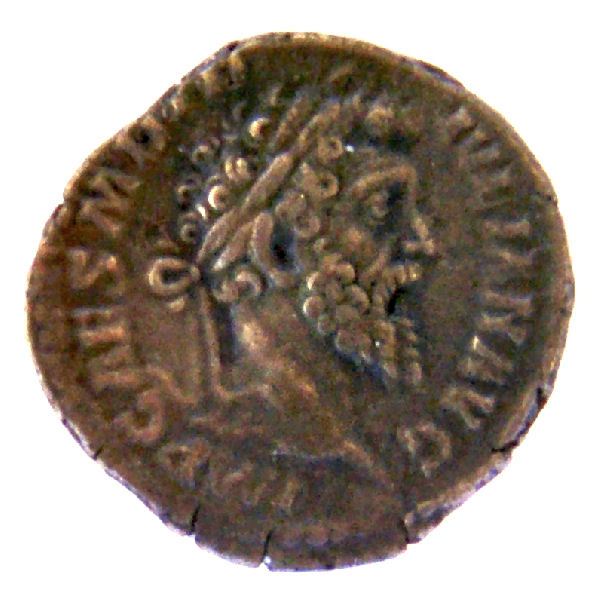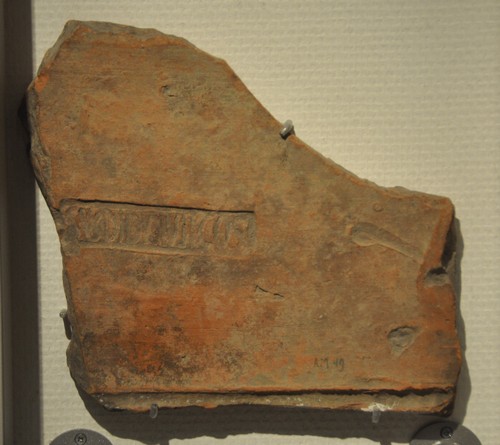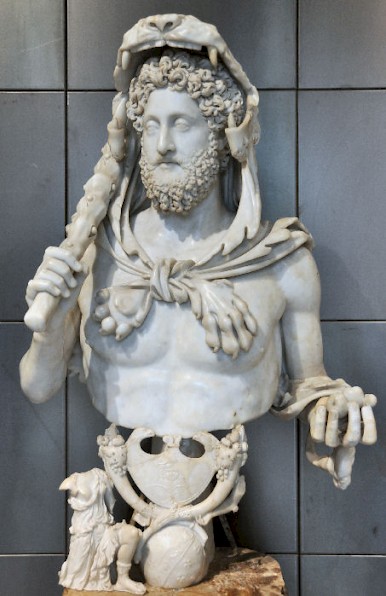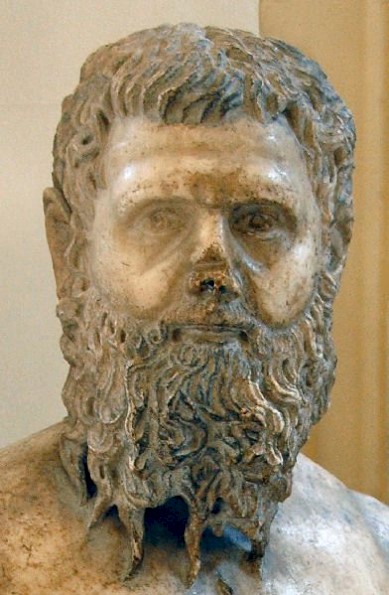Didius Julianus
Marcus Didius Severus Julianus (133?-193): Roman emperor, ruled for sixty-six days in 193.
Early Career

Marcus Didius Severus Julianus was born as the son of Quintus Petronius Didius Julianus and Aemilia Clara. They were living in northern Italy, in Milan, an important center of trade and learning with the status of colonia. The birthday of the young men is not precisely known: the historian Cassius Dio says it was on 30 January 133, the collection of biographies known as the Historia Augusta, implies 2 February 137 (which is less likely).note
According to this same source, Didius Julianus was educated in the household of Domitia Lucilla, the mother of the crown prince Marcus Aurelius.note It seems that she supported the young man's early career, so that he could serve as decemvir stlitibus iudicandis at the normal age (about 18). This juridical office was a common start for the career of a young senator. When he was twenty, he served as tribune in a legion and was quaestor in c.157, one year before attaining the official minimum age. He must have received this honor due to support of Domitia Lucilla.
Still according to the Historia Augusta, Marcus Aurelius saw to Didius Julianus' appointment to aedile (c.160), and when he had become emperor (161) made him praetor (c.163).note A few years later, Didius Julianus served as assistant of the governor of Asia. After his term in office, he assisted the governor of Africa (168-169?). In 170-171, he was commander of XXII Primigenia a legion that guarded the Rhine at Mainz.note
At this stage in his career, Didius Julianus ought to have been made consul. We do not known why this did not happen, unless he had fallen into disfavor. Perhaps it is noteworthy that the three offices mentioned in the preceding section were without risk. The empire was fighting wars in the east and on the Danube, but not in Africa, Asia or the Rhine frontier (but see below).
General
The next appointment, as governor of Gallia Belgica, fits the picture:note it was honorable but he was kept away from the really important offices. However, there was an opportunity to prove his value. In 173, the Chauci, a Germanic tribe that lived along the shores of the Wadden Sea and had a reputation for piracy, unexpectedly invaded the country that is now called Flanders. Archaeologists doing research in the region of the river Scheldt have shown that this was not a minor incursion, but a far more serious matter. Large farms near Tournai were abandoned, the same happened to the village Velzeke (near Gand), and Arras was burnt down. The capitals of the Morini and Nervians, Thérouanne and Bavay, had to be rebuilt in the last quarter of the second century.
Didius Julianus rose to the occasion. He recruited troops in his province and attacked the invaders. One fortified camp has been excavated near Maldegem (east of Bruges), and can dendrochronologically be dated to 173. It offered accommodation to a squadron of Tungrian cavalry, which must have been among the auxiliary troops of Didius Julianus. He defeated the invaders and must have been the man who advised Marcus Aurelius to build forts along the coast of the North Sea. This was the beginning of the group of defense works along the Strait of Dover that became known as the litis Saxonicum.
The Historia augusta also mentions a victory over the Chatti,note which is not very probable and may be a writing error (Chatti instead of Chauci). Another explanation is that Didius Julianus defeated this Germanic tribe when he was commander of XXII Primigenia, because this legion was stationed at Mainz, directly opposite the Chatti.
Didius Julianus was now immediately made consul (in 175)note - by no means early for one who had been brought up in the household of the mother of the emperor: he was forty-two years old. His colleague was Publius Helvius Pertinax, another successful general. It is probable that both men held their high office in absentia and resided at the imperial court, which was at this traveling from the Danube, where Marcus Aurelius had been fighting an enormous war against the Marcomanni, to the east, which the emperor wanted to inspect after a brief and unsuccessful rebellion in the spring (led by Avidius Cassius).
After his consulate, Didius Julianus was made governor of Dalmatia. This was an assignment of some importance, because Dalmatia was the hinterland of the war zone along the Danube. Almost certainly, Didius Julianus played a role in the provisioning of the armies. He also was active in the suppression of brigandage in Montenegro and Albania (176-180).

Having done this job, he was made governor of Germania Inferior, adjacent to the war zone where he had fought against the Chauci (180-184/185). Didius Julianus was now responsible for two legions (I Minervia in Bonn and XXX Ulpia Victrix in Xanten) and was one of the most important generals in the empire. It is possible that he oversaw the construction of the forts along the coast. One building can with absolute certainty be dated during his governorship: the praetorium at Cologne, the office of the governor, was renovated. He may also have been involved in the reconstruction of forts at Valkenburg and Zwammerdam.

Meanwhile, Rome had a new emperor. Marcus Aurelius had died in 180, and had been succeeded by his son Commodus. From the beginning, the relations between this ruler and the Senate were strained, and in 182, a young senator named Claudius Pompeianus tried to kill his master when he entered the Colosseum. The assassin was unsuccessful, but a second attack on one of the emperor's advisers had the intended result. Commodus was furious. The praetorian prefect was held responsible and killed, and several senators were executed.
What was more important: Commodus started to remove successful generals from their posts. They could become dangerous supporters of the Senate. One of those who was forced to retire was Pertinax. Didius Julianus was another.

He was now recalled to Rome, where he was made prefect and became responsible for the financial support of children. For one who had fought successful wars, this was a demotion. It is possible that Didius Julianus had to some extent been involved in the conspiracy against Commodus, because he was accused. However, the emperor seems to have been content now that Didius Julianus was removed from his soldiers. In his new office, he was succeeded by Pertinax, and in the mid-180s we meet Didius Julianus as governor of Bithyniae et Pontus. In 189-190, he was governor of Africa (where he succeeded Pertinax): honorable offices for honorable men, but far away from the legions.
And so it looked as if Didius Julianus' career had ended. It had been a complete success: he had been consul, he had been governor of several provinces, among which were Africa (the richest province in the Roman empire) and Germania Inferior (with two legions). His military successes, however, had made him suspect.